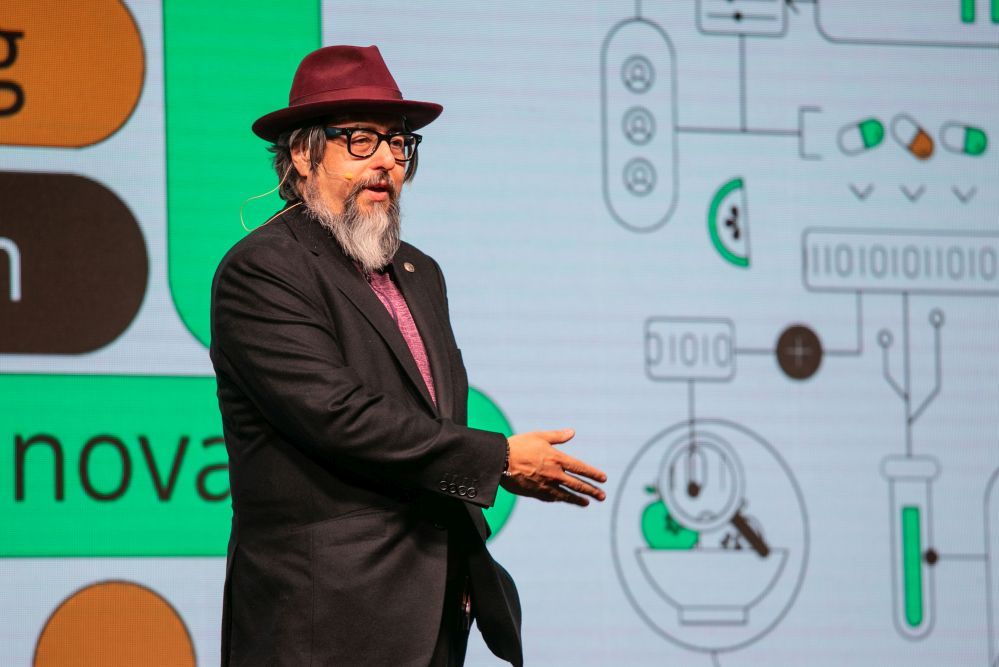“There is an enormously bright future for precision fermentation and cellular agriculture; the efficiencies alone make that true,” Bill Liao, general partner at global VC fund SOSV, explained at the Food Tech Congress in Warsaw last month.
But with a global shortage of bioreactors and expertise, regulatory and IP challenges, he warned, “The road ahead is much tougher than it was.”
“Getting major scale is extremely expensive and it will be for quite some time, It’s not as easy to get companies funded as it was five or six years ago. There’s a lot of sunk capital waiting for a return and until we see our first big exits and that cash freed up, it’s going to continue to be quite hard to raise in cellular agriculture.
“While the hype cycle for biotech and cellular agriculture is in its first dip,” said Liao, there will be a “strong comeback”.

The Chinese-Australian-Irish entrepreneur, investor and former diplomat has been investing in cellular agriculture for over a decade, launching the world’s first biotech accelerator, RebelBio (now merged with SOSV’s IndieBio) to provide seed funding, lab space and mentorship to biotech startups.
One of SOSV’s portfolio companies and accelerator participants, UPSIDE Foods, just secured regulatory approval, alongside GOOD Meat, to sell cell-cultivated chicken meat in the US. The historic achievement signals a hopeful trajectory, despite the industry’s various hurdles.
Bioreactor bottlenecks and IP risk
So what are some of the challenges stifling industry progress?
“The global trend towards outsourcing fermentation is so far untested as to how well the intellectual property is protected,” said Bill, noting a surge in startups popping up in the precision fermentation space, “despite multiple patents.”
“I’m anticipating some very large consolidations or legal battles over who owns what. It’s fine if you have know-how, but know-how tends to walk between places,” he said.
A key lesson Liao shared, is that fermentation capacity know-how is somewhat rare.”
“People who have the specific expertise to figure out how to drive bioreactors are not common and undervalued,” noted Liao. “You might be able to get yourself a 1,000,000-liter tank but you won’t be able to find anyone to drive it.”
“Startups that are already manufacturing have a strategic advantage and have a much easier time scaling than the ones trying to outsource now.”
Next generation technologies
According to Liao, “There’s a big state of change that needs to happen in the fermentation process that will make a lot of current technology obsolete, specifically traditional steel tank fermenters because of completely novel ways of growing microorganisms.
“There’s a whole raft of new fermentation precursor companies and new precision fermentation companies that are doing very novel forms of chemistry and very high yield fermentations.”
He added: “I’m particularly excited about the next generation of cellular agriculture and precision fermentation because there are some big things coming down the pipeline.”
Unlocking success: Advice to startups and investors
When it comes to founders in the space, said Liao, “The entire startup and entrepreneurial covenant is based around conviction. If you don’t have conviction in what you’re doing, you won’t raise money, you won’t hire people, and you won’t be able to get consumers. Conviction is everything in entrepreneurship and investment.”
“Don’t expect it [cellular agriculture] to be an easy investment if you’re an investor, and don’t expect it to be an easy sell if you’re an entrepreneur.”
On the plus side, he said, “If you’re [a startup] based in Europe, there is a tremendous amount of grant funding available still that can be used, at least for the development side of this.”
Feeding the world and overcoming food protectionism
As for the regulatory path forward, he said, “So many countries are way behind on their regulatory processes for food, especially these kinds of [cellular ag] foods, which is usually down to stupid food protectionism.”
“Singapore is desperate for food security so they have some of the most avant-garde laws in the world. But food protectionism in Europe has been around for a very long time.”
In the EU, meanwhile, there is still a lot of investment in cellular agriculture, despite the region’s “near-total and nonsensical ban” of GMO foods and Italy’s recent move to ban cultivated meat, both of which defy global efforts to ensure food security, said Liao.
He added: “I think there’s always going to be a market for aesthetic food. But I don’t think Italy has to ban cellular agriculture in order to preserve its food culture. Italy can’t feed the world. In fact, if you look at the balance of trade, Italy can’t even feed Italy.”




